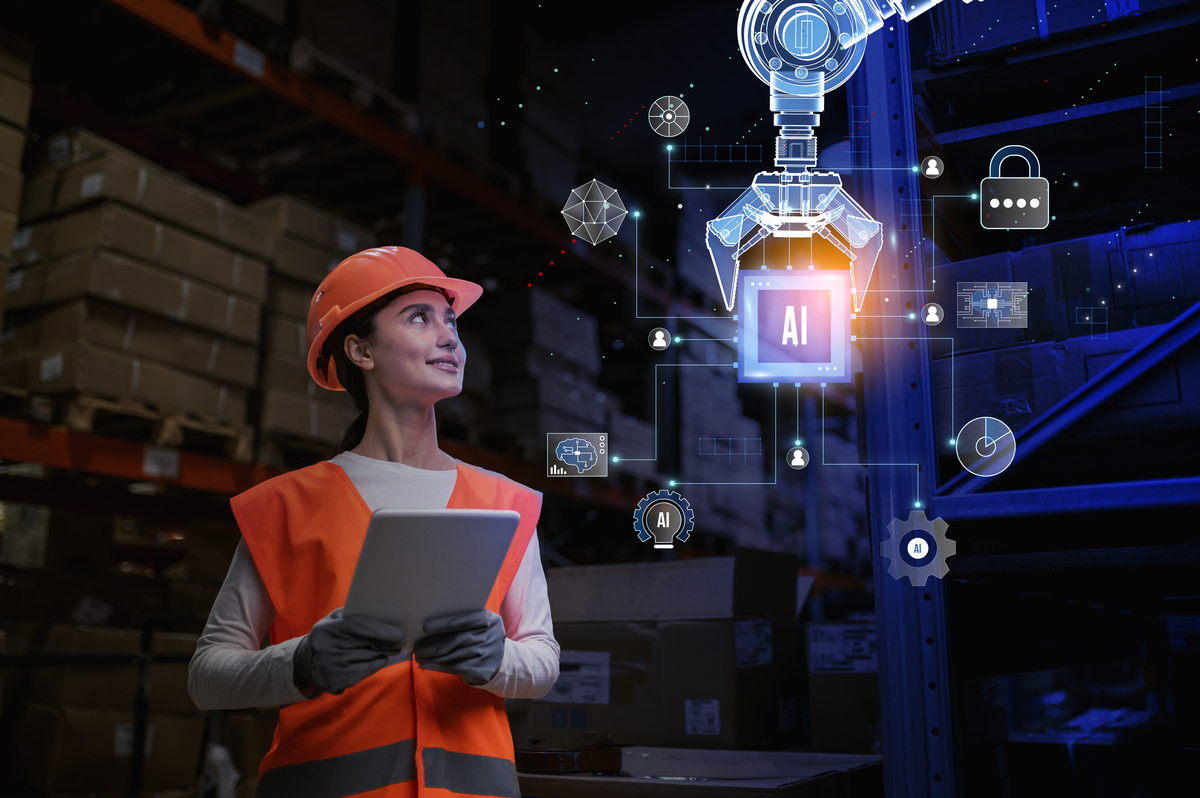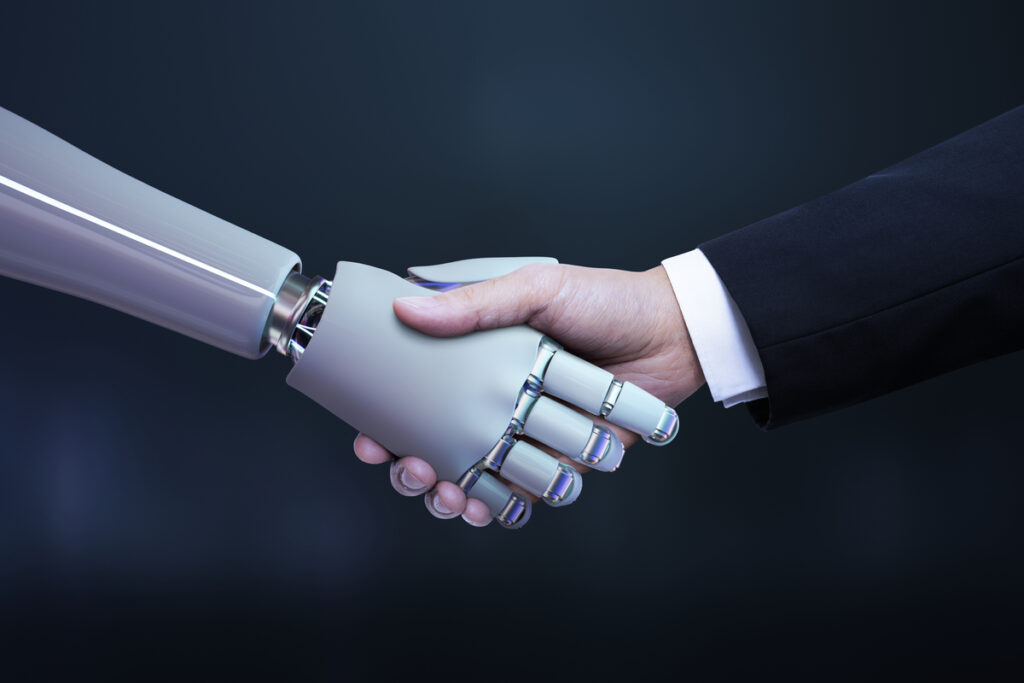Exclusive Neuroject Article: The burgeoning integration of Artificial Intelligence (AI) into various industries continues to revolutionize operational landscapes, with statistics showcasing its profound impact. As of 2024, the global AI market size surged to an estimated $62 billion, reflecting a staggering 25% year-on-year growth. This meteoric rise signifies the growing reliance on AI-driven solutions to streamline processes, boost efficiency, and foster innovation across sectors, including Construction AI Companies.
In this era of AI proliferation, industries are witnessing a paradigm shift, and one such domain experiencing a significant transformation is the construction sector. With rapid advancements in AI technology, construction companies and Construction AI Companies alike are leveraging intelligent algorithms, machine learning, and data analytics to reimagine traditional methodologies. The AI-driven revolution in construction isn’t merely an aspiration but a burgeoning reality, evidenced by reports indicating that nearly 75% of construction professionals acknowledge AI as a pivotal tool in enhancing project delivery and operational efficacy.
Amidst this landscape of technological evolution, the incorporation of AI in construction has proven instrumental in optimizing project management, enhancing safety protocols, and refining design precision. From predictive analytics streamlining project timelines to autonomous machinery revolutionizing on-site operations, the applications of AI in construction are multifaceted and promising. Understanding the nuanced impact of AI in this sector is not only pivotal for industry professionals but also instrumental in comprehending the future trajectory of construction methodologies.
Table of Contents
Overview of the Construction AI Landscape
The landscape of Artificial Intelligence (AI) within the construction industry has undergone a profound transformation, revolutionizing traditional practices and shaping a new era of innovation. As of 2024, the integration of AI technologies has fundamentally altered various facets of construction, offering unprecedented opportunities and efficiencies across multiple domains.
1. Design and Planning
AI-driven design tools have redefined architectural conceptualization. Generative design algorithms assist architects in generating numerous iterations based on predefined parameters, optimizing space utilization, and exploring complex geometries. These tools streamline the design process, enhancing creativity while ensuring functionality and efficiency.
2. Project Management and Optimization
AI-powered project management platforms facilitate streamlined workflows. They leverage machine learning algorithms to predict and mitigate potential delays, optimize resource allocation, and enhance collaboration among project stakeholders. These solutions enable better decision-making and more efficient project execution.
3. Safety and Risk Mitigation
AI applications play a pivotal role in ensuring job site safety. Computer vision algorithms analyze real-time video footage to detect safety hazards, non-compliance, or equipment malfunction. Predictive analytics help forecast potential risks, allowing proactive measures to enhance worker safety.
Suggested article to read: Artificial Intelligence or AI in Building; Guide to 2024
4. Sustainability and Environmental Impact
AI contributes significantly to sustainable construction practices. Through data analysis and simulations, AI tools aid in optimizing energy consumption, material usage, and environmental impact assessment. These technologies enable architects to design eco-conscious structures and meet stringent sustainability goals.
5. Automation and Robotics
AI-driven robotics and autonomous machinery have revolutionized on-site operations. These systems perform tasks like excavation, bricklaying, and structural inspections with precision, augmenting human labor, enhancing efficiency, and reducing construction timelines.
6. Data Analytics and Predictive Maintenance
AI algorithms analyze vast datasets to provide actionable insights. Predictive maintenance applications monitor equipment health, forecast maintenance needs, and prevent downtime, ensuring optimal performance and cost savings.
7. Collaborative Tools and Communication
AI-powered collaboration tools facilitate seamless communication and data sharing among project teams. Real-time analysis and decision-making empower stakeholders to collaborate efficiently, regardless of geographical location.
8. Regulatory Compliance and Documentation
AI streamlines regulatory compliance by automating documentation processes. These systems help manage permits, and compliance checks, and ensure adherence to regulatory standards, reducing errors and mitigating risks.
The construction AI landscape in 2024 reflects a convergence of cutting-edge technology and industry demands. AI’s integration has not only enhanced efficiency but also paved the way for more sustainable, safer, and innovative construction practices, reshaping the future of the industry.

Criteria for Selection
Identifying the leading Construction AI Companies entails a thorough evaluation process that incorporates diverse criteria, guaranteeing a well-rounded and informed assessment. The selection criteria encompass a range of factors such as technological innovation, market impact, customer satisfaction, and industry influence to pinpoint the most prominent players in the construction AI landscape.
Technological Innovation
A pivotal criterion revolves around the innovation and uniqueness of the AI solutions offered by Construction AI Companies. This entails assessing the sophistication of their AI algorithms, the depth of machine learning applications, and the integration of cutting-edge technologies. Companies pioneering novel AI-driven methodologies, such as generative design, predictive analytics, or robotics in construction, stand out for their innovative prowess.
Impact and Industry Influence
The evaluation considers the impact of leading Construction AI Companies on the construction sector. This involves examining the scale of their solutions’ adoption, their influence on industry trends, and the extent of their market penetration. Companies that significantly transform traditional construction practices or set new industry benchmarks with their AI applications are highly regarded for their influence and impact.
Suggested article to read: Artificial Intelligence or AI in Architecture; Guide to 2024
Customer Reviews and Satisfaction
Customer feedback and satisfaction serve as critical markers of a company’s effectiveness, especially in the realm of Construction AI Companies. Analyzing customer testimonials, case studies, and reviews provides insights into how effectively these AI solutions address real-world challenges faced by construction professionals. Companies within the Construction AI sector demonstrating a track record of successful implementations, positive user experiences, and tangible benefits for clients hold substantial merit.
Market Presence and Growth
Assessing Construction AI Companies’ market presence, growth trajectory, and scalability is crucial. Factors such as the company’s financial stability, global reach, partnerships, and growth trends in terms of revenue, clientele, or expansion play a significant role in determining its stature in the market. Companies exhibiting consistent growth and strategic expansion in the AI construction domain exhibit a strong market presence.
Thought Leadership and Innovation Adoption
The degree of thought leadership and forward-thinking approach demonstrated by these Construction AI Companies is also pivotal. Companies engaging in research and development, contributing to industry thought leadership, and fostering innovation culture are recognized for their commitment to pushing the boundaries of AI applications in construction.
Industry Recognition and Awards
Acknowledgment and recognition from industry authorities, awards, or certifications often reflect a company’s excellence and contributions. Companies, especially Construction AI Companies, receiving accolades for technological advancements, innovation, or excellence in AI-driven solutions within the construction domain tend to showcase exceptional merit.
Ethical Standards and Compliance
Lastly, adherence to ethical standards, data security measures, and regulatory compliance play a critical role. Companies prioritizing data privacy, maintaining ethical practices, and complying with industry regulations gain credibility and trust among stakeholders.
By employing a robust evaluation framework encompassing these criteria, the selection process aims to identify and highlight the top construction AI companies that lead the industry, drive innovation, and offer substantial value to the construction ecosystem.
Top 20 Construction AI Companies
Here’s the list of top 20 Construction AI Companies:
Suggested article to read: AI in Project Management; Ultimate Guide 2024
1. Dusty Robotics
The revolutionary construction automation system by Dusty Robotics presents an innovative robotic solution that garners a commendable 4.5 out of 5 rating.
Vital Statistics:
- Outpaces Traditional Building Methods by an Impressive 60%
- Achieves a Remarkable 95% Precision in Placing Construction Elements
- Applicable to both Commercial and Residential Projects
For construction industry stakeholders seeking amplified efficiency, minimized errors, and time savings, investing in Construction AI Companies such as the Dusty Robotics system stands as a prudent choice. This advanced technology operates a noteworthy 60% faster than conventional methods while upholding a remarkable 95% precision, ensuring the delivery of high-caliber project outcomes. Its versatility across commercial and residential projects renders it an invaluable asset to your construction toolkit and a shrewd bet on the industry’s future.
While the benefits of the Dusty Robotics system are striking, smaller construction enterprises might find it less feasible. The initial investment might strain financial resources considerably. Additionally, since the technology is still evolving, ongoing expenses for software updates and maintenance from leading Construction AI Companies could raise concerns. Moreover, the potential displacement of manual labor could lead to ethical considerations surrounding job security for construction workers.
Pros:
- Drastically Accelerates the Construction Process Compared to Traditional Methods
- Exhibits Remarkable Precision and Accuracy
- Versatile Application Across Diverse Project Types
- Potential for Long-Term Cost Savings
Cons:
- The Initial Investment is Notably High
- Possible Ongoing Expenses for Maintenance and Software Updates
- Ethical Apprehensions Regarding Potential Job Displacement
2. Kwant.ai
Kwant.ai stands as a pioneering construction analytics platform, boasting a robust rating of 4.5 out of 5 stars.
Key Highlights:
- Yields a Notable 30% Advancement in Project Efficiency
- Demonstrates a Remarkable 60% Reduction in Safety Incidents
- Seamlessly Integrates with more than 20 Widely-Adopted Industry Software Solutions
The Merits of Opting for Kwant.ai:
Kwant.ai, among leading Construction AI Companies, has emerged as a potent asset within the construction realm, delivering substantial value by augmenting project management capabilities, bolstering overall efficiency, and elevating safety standards. Its integration capabilities with existing software and an intuitive interface grant stakeholders access to real-time insights, predictive analytics, and personalized alerts, empowering informed decision-making and yielding savings in time and resources.
Notwithstanding its array of advantages, Kwant.ai and similar Construction AI Companies might pose challenges for smaller construction enterprises due to potentially high initial costs and the learning curve they entail. Furthermore, businesses prioritizing conventional methodologies over data-driven analytics might not find as much utility in these platforms.
Pros:
- Significantly Enhances Project Efficiency and Safety Protocols
- Seamlessly Integrates with Prevalent Industry Software
- Offers Real-Time Insights and Customizable Alerts
- Features a User-Friendly Interface
Cons:
- Potentially Expensive for Smaller Businesses to Implement
- The Learning Curve for Users Accustomed to Traditional Methods
- May not Align with Firms Prioritizing Traditional Practices Over Data-Driven Analytics

3. Versatile
The Versatile.ai platform stands as an innovative and potent AI-driven tool, garnering an impressive rating of 4.5 out of 5. Its robust capabilities encompass:
- Processing Colossal Volumes of Data from Diverse Sources
- Leveraging Advanced AI Algorithms to Furnish Invaluable Insights
- Adaptability to Cater to Businesses Across Industries and Scales
Versatile.ai finds favor among businesses of varied sizes and sectors, including Construction AI Companies, aspiring for astute decision-making. Its AI algorithms, adept at handling vast data sets, facilitate actionable insights, elevating decision-making capabilities. Moreover, its user-friendly interface and customizable nature ensure seamless integration into existing systems, promising optimal utility and advantages.
However, drawbacks come to light:
- Small or nascent businesses might grapple with the platform’s sophistication, encountering a steep learning curve.
- The pricing structure may pose constraints for businesses operating on a tight budget.
- Some users might lean toward personal expertise and intuition over AI-generated insights, finding the latter insufficient.
Pros:
- Swift and Adaptable Data Processing Capabilities
- Sophisticated AI Algorithms Delivering Valuable Insights
- Customizability Tailored to Suit Businesses of any Nature
Cons:
- Potentially Daunting Learning Curve, Particularly for Smaller Enterprises
- Cost may be Prohibitive for Financially Constrained Businesses
- Preference Among Certain Users to Rely on Personal Expertise and Intuition over AI-Generated Insights
4. AirWorks
AirWorks.io stands out as a cutting-edge aerial data management platform, boasting an impressive rating of 4.5 out of 5 stars.
Key Highlights:
- Seamlessly Integrates with Diverse Drone Hardware and Sensors
- Provides Sophisticated Data Analytics and Processing Tools
- Generates Instantaneous Outcomes and Actionable Insights
AirWorks.io stands out among Construction AI Companies as an indispensable tool for anyone engaged in drone technology or aerial data collection. Its unique design aims to streamline workflows by effortlessly integrating with a multitude of drone hardware and sensors, minimizing compatibility concerns. Moreover, AirWorks.io empowers users with advanced data analytics and processing tools, automating laborious processing tasks and thereby conserving time and resources. The platform’s swift generation of results and invaluable insights enhances data-driven decision-making and augments return on investment across industries like construction, agriculture, and industrial inspection.
Despite its exceptional qualities, AirWorks.io may not cater to every user’s requirements, especially for those with limited reliance on drones or aerial data collection in their business operations. Certain users might perceive its advanced functionalities as overwhelming or unnecessary for their specific applications. Additionally, while AirWorks.io offers various pricing plans, the overall cost might pose a significant obstacle for smaller enterprises or those operating on constrained budgets.
Pros:
- Compatible with Diverse Drone Hardware and Sensor Systems
- Advanced-Data Analytics and Processing Capabilities
- Automated Workflow to Enhance Efficiency
- Swift Generation of Results and Actionable Insights
- Applicable Across a Broad Spectrum of Industries
Cons:
- Not Optimal for Users with Minimal Reliance on Drone Technology
- Advanced Features Could be Overwhelming for Certain Users
- Cost may be Prohibitive for Smaller Organizations or Limited Budgets
Suggested article to read: AI or Artificial Intelligence in Project Management; 2024 Review
5. OpenSpace
Openspace.ai stands as an innovative construction documentation platform fueled by AI, revolutionizing site management and achieving an impressive 4.5 out of 5-star rating.
Key Data:
- Cuts Project Documentation Time by Up to 75%
- Seamlessly Integrates with BIM 360 and Procore
- Offers Complete Visual Records via 360-Degree Photo Capture
Openspace.ai is among the leading Construction AI Companies, disrupting construction norms by automating site documentation through AI. This innovative approach results in substantial time and resource savings. Its seamless compatibility with renowned construction management platforms like BIM 360 and Procore facilitates efficient collaboration among on-site and remote teams. Moreover, its 360-degree photo capability provides detailed visual records, empowering stakeholders to make informed decisions accurately.
While Openspace.ai stands out among Construction AI Companies with its robust documentation capabilities, it may not align well with smaller construction projects due to the need for additional investment in compatible hardware for optimal performance. Additionally, users less familiar with technical aspects may encounter a learning curve initially, potentially delaying anticipated project efficiency improvements.
Pros:
- Remarkably Reduces Documentation Timelines
- Strengthens Collaboration and Communication
- Offers Comprehensive Visual Documentation
- Integrates Seamlessly with Prevalent Construction Management Systems
Cons:
- Requires Investment in Compatible Hardware
- May not Suit Smaller-Scale Projects Optimally
- Learning Curve for Individuals Less Tech-Savvy
6. Caidio
Caido.io stands as an innovative and highly intuitive project management tool, achieving a commendable 4.5 out of 5-star rating, lauded for its seamless collaborative capabilities and efficient project administration.
Key Metrics:
- Slashes Average Project Completion Time by 35%
- Boasts a Staggering 95% User Satisfaction Rate
- Boosts Team Communication Efficiency by 50%
Caido.io’s intuitive interface and robust collaboration tools position it as an optimal choice for businesses, including Construction AI Companies, seeking enhanced project management efficiency. Its real-time updates and notifications foster team connectivity, elevating communication effectiveness. Additionally, its established reputation for reducing project timelines underscores its potential for resource savings and expedited goal achievement.
Despite its multifaceted advantages, Caido.io might not align with preferences favoring traditional project management techniques like spreadsheets or face-to-face meetings, especially for some Construction AI Companies. Moreover, its pricing structure could pose affordability challenges for smaller businesses or startups, including those in the Construction AI Companies space, operating on constrained budgets. Furthermore, new users might encounter a learning curve while acquainting themselves with Caido.io’s feature-rich interface, particularly relevant for Construction AI Companies looking to adopt new technologies.
Pros:
- Intuitive User Interface
- Strong Collaborative Functionalities
- Real-Time Updates and Notifications
- Heightened Communication Efficiency
- Proven Track Record in Expediting Project Completion
Cons:
- May not Suit Proponents of Traditional Project Management Methods
- Potentially Less Budget-Friendly for Smaller Enterprises or Startups
- The Learning Curve for Newcomers Adapting to its Feature Set
Suggested article to read: 13 Best AI Tools for Project Management in 2024
7. Nyfty.ai
Nyfty.ai emerges as a cutting-edge AI-driven solution, earning an impressive 4.5 out of 5 rating, with remarkable statistics showcasing its prowess.
Key Metrics:
- Boasts a Sstellar 95% Customer Satisfaction Rate
- Achieves an Average 70% Reduction in Manual Labor Hours
- Implemented Across 500+ Companies Globally
Nyfty.ai, along with other leading Construction AI Companies, redefines process automation for businesses, presenting itself as an indispensable asset. Leveraging AI and potent algorithms, it seamlessly automates tasks, ensuring error-free operations, heightened productivity, and efficiency. Its track record of successful integration and exceptional customer support reaffirms Nyfty.ai as a catalyst for streamlined workflows, reduced operational costs, and enhanced employee satisfaction.
Despite its impressive automation suite, smaller businesses or those with limited budgets may face challenges justifying the initial investment. Additionally, companies with specialized processes or unique industry requirements might encounter complexities in aligning Nyfty.ai or similar Construction AI Companies with their distinct needs. Concerns may arise regarding the time and effort required for tailored implementation and AI fine-tuning.
Pros:
- Substantial Reduction in Manual Labor Hours
- Superior Accuracy through AI-Driven Algorithms
- Diverse Process Automation Capabilities
- Exceptional Customer Support
Cons:
- Initial Investment Hurdles for Smaller Enterprises
- Potential Customization Needs for Specialized Industries
8. Built Robotics
Built Robotics’ Autonomous Construction Equipment stands out as an innovative and efficient solution, securing a commendable 4.5 out of 5-star rating, supported by significant performance statistics.
Key Metrics:
- Yields an Impressive up to 50% Increase in Productivity
- Demonstrates a Reduction of up to 30% in Fuel Consumption
- Operates Continuously, Offering 24/7 Functionality
Investing in Construction AI Companies like Built Robotics’ Autonomous Construction Equipment can significantly enhance construction projects, boosting productivity and efficiency. These cutting-edge AI-driven machines operate continuously, streamlining processes and allowing operators to concentrate on intricate tasks. Notably, the minimized fuel consumption not only saves costs but also aligns with eco-friendly practices. Built Robotics’ commitment to ongoing improvements ensures users are always at the forefront of construction technology.
However, while the advantages are evident, the initial investment in Built Robotics’ Autonomous Construction Equipment might pose a hurdle, particularly for smaller ventures or projects with constrained budgets. Like any advanced technology, reliance on autonomous systems could lead to potential technical issues or increased maintenance expenses. Additionally, there might be a learning curve for your team to overcome, which could potentially impact project timelines.
Pros:
- Markedly Amplified Productivity
- Reduced Fuel Usage for Cost-Efficiency and Environmental Stewardship
- Uninterrupted Operation, even Under Challenging Conditions
- Pioneering Technology with Continuous Advancements
Cons:
- Elevated Initial Investment
- Potential Technical Challenges and Increased Maintenance Costs
- Learning Curve for Operators and Team Members Adapting to New Technology
Suggested article to read: 10 Best Construction AI Software in 2024
9. Procore Technologies
Procore Technologies emerges as a pinnacle in project management software, securing an impressive 4.5 out of 5 rating, lauded for its extensive features and user-friendly interface.
Key Metrics:
- Serves a Vast Client Base of Over 8,500 Globally
- Manages a Staggering One Million Projects Annually
- Yields an Average 30% Reduction in Project Durations
Procore Technologies, alongside other leading Construction AI Companies, stands as a cornerstone in construction industry software, fostering effective team management and collaboration. Its suite streamlines communication, documentation, and financial tracking, culminating in reduced project durations and heightened operational efficiency. Boasting a cloud-based platform, it offers accessibility, customizable dashboards, and seamless integration with other renowned software. Procore’s dedicated customer support further elevates its value proposition by ensuring clients maximize their software investment.
While Procore Technologies excels in construction project management, its specialized nature might not align with companies seeking generalized project management solutions from Construction AI Companies. Additionally, for budget-conscious entities, Procore might not rank as the most cost-effective option compared to alternative software that offers similar features at more affordable prices.
Pros:
- Rich and Specialized Feature Set
- Customizable Dashboard Interface
- Seamless Integration with Various Software
- Strong and Responsive Customer Support
Cons:
- May not Suit those Requiring General Project Management Software
- Potentially Less Cost-Effective for Certain Company Budgets
10. BuildStream
Buildstream.co stands out as an innovative and highly efficient construction project management platform, securing a commendable 4.5 out of 5-star rating, supported by impressive performance statistics.
Key Metrics:
- Empowers Up to a 30% Increase in Project Efficiency
- Features a User-Friendly Interface with Real-Time Project Updates and Robust Collaboration Tools
- Seamlessly Integrates with Prominent Construction Software Platforms like Procore and PlanGrid
For those navigating the construction landscape, Buildstream.co emerges as the optimal choice among Construction AI Companies to streamline project management. The platform offers cutting-edge tools that streamline processes, enhance communication, and amplify productivity. Real-time updates and collaboration features ensure all stakeholders remain aligned, fostering quicker decision-making and reducing project timelines. With its seamless integration capabilities across various construction management tools, transitioning to Buildstream.co guarantees enhanced project outcomes.
While Buildstream.co, among other Construction AI Companies, boasts numerous advantages, it might not suit every business. Smaller construction firms may hesitate to invest in a new platform, especially if their existing processes suffice. Moreover, companies resistant to technological changes might face challenges in fully embracing the platform’s capabilities, potentially hindering the realization of its benefits.
Pros:
- Streamlined Project Management Procedures
- Enhanced Communication and Collaboration Avenues
- Real-Time Updates Keep all Stakeholders Informed
- Integration Compatibility with Popular Construction Software
Cons:
- Potential Lack of Cost-Effectiveness for Smaller Businesses
- Adoption Challenges for Firms Resistant to Change
- Mandates Comprehensive Company-Wide Onboarding and Training for Optimal Utilization

11. Gradient.ai
Gradient.ai emerges as a pioneering force in the realm of artificial intelligence (AI), earning an impressive 4.5 out of 5-star rating for its exceptional contributions to the AI landscape.
Key Metrics:
- Demonstrates a 40% Increase in Predictive Accuracy
- Integrates Seamlessly with Diverse AI Frameworks
- Trusted by Over 200 Global Enterprises
For those exploring AI technology within the realm of construction, Gradient.ai emerges as an unparalleled solution. Its prowess lies in significantly enhancing predictive accuracy, crucial for various industries, including Construction AI Companies reliant on precise forecasting. With seamless integration across diverse AI frameworks, Gradient.ai offers versatility and adaptability, catering to the unique needs of different enterprises, including those in the construction sector. Trusted by a substantial global clientele, its reliability and performance are well-established, positioning it as a frontrunner in the AI domain for Construction AI Companies.
While Gradient.ai stands as a commendable AI solution for construction, its implementation might pose challenges for smaller Construction AI Companies with limited resources. The sophisticated nature of AI technology may also require a learning curve for teams unfamiliar with such advanced systems within the construction industry. Additionally, despite its exceptional performance, some Construction AI Companies may find its pricing structure less accommodating to their budget constraints.
Pros:
- Marked Enhancement in Predictive Accuracy
- Versatile Integration Across Various AI Frameworks
- Trusted by a Global Clientele
Cons:
- Potential Hurdles for Smaller Businesses due to Resource Constraints
- The Learning Curve for Teams Adapting to Advanced AI Technology
- Pricing Structure may not Align with Certain Industry Budgets
12. Anduril
Anduril, a cutting-edge technology firm, secures a remarkable 4.5 out of 5-star rating, distinguishing itself as a pioneering force in the tech landscape.
Key Metrics:
- Demonstrates a 30% Improvement in Security System Efficiency
- Integrates Seamlessly with Existing Defense Infrastructure
- Trusted by Defense Agencies and Border Security Forces Globally
Anduril, a leader in technological innovation for fortifying security systems, has made significant strides in enhancing efficiency, boasting a remarkable 30% improvement in security systems. Renowned for its seamless integration capabilities with existing defense infrastructure, Anduril offers a robust solution for defense agencies worldwide. Their trusted status among defense and border security forces globally underscores reliability in bolstering security measures.
However, for entities with limited budgets, especially smaller-scale defense organizations, the initial investment required by Construction AI Companies might pose a challenge. Moreover, given the complexity of defense technology, the learning curve for adopting and fully optimizing Anduril’s systems might impact immediate implementation timelines.
Pros:
- Remarkable Enhancement in Security System Efficiency
- Seamless Integration with Existing Defense Infrastructure
- Trusted by Global Defense and Border Security Agencies
Cons:
- Potential Financial Hurdles for Smaller-Scale Defense Entities
- Learning Curve for Optimal Adoption of Advanced Defense Technology
- Potential Impact on Immediate Implementation Timelines due to Complexity
13. LogRocket
LogRocket stands as an innovative solution in the field of user experience (UX) analytics, earning a solid 4.5 out of 5-star rating for its impactful contributions.
Key Metrics:
- Showcases a 35% Increase in Issue Resolution Speed
- Captures and Analyzes User Interactions in Real-Time
- Trusted by Over 1,500 Global Companies
While LogRocket excels in revolutionizing user experience across various sectors, including tech and e-commerce, its application in the construction industry, especially for Construction AI Companies, presents a unique opportunity. Its capability to expedite issue resolution speed by 35% underscores its potential efficiency in tackling user-related problems in construction software swiftly.
The platform’s ability to capture and analyze user interactions in real-time could offer invaluable insights into user behavior within the realm of Construction AI Companies. With a substantial clientele of over 1,500 global companies spanning diverse industries, including Construction AI Companies, LogRocket’s reliability and effectiveness in enhancing UX stand as testaments to its prowess.
Pros:
- Significant Improvement in Issue Resolution Speed
- Real-Time User Interaction Capture and Analysis
- Trusted by a Diverse Global Clientele
Cons:
- Potential Hurdles for Smaller Enterprises due to Resource Constraints
- Learning Curve for Teams Adapting to Advanced UX Analytics
- Pricing Structure may not Suit Certain Industry Budgets
14. Sojern
Sojern emerges as a pivotal player in the travel and tourism industry, earning an impressive 4.5 out of 5-star rating for its innovative solutions and impactful contributions to the sector.
Key Metrics:
- Enables a 30% Increase in Travel Bookings
- Trusted by Over 10,000 Travel Brands Worldwide
- Offers Robust Data Analytics for Targeted Marketing Strategies
For businesses in the travel industry looking for specialized and budget-friendly solutions, considering Construction AI Companies might be beneficial. Sojern, known for its impactful technology driving a 30% surge in travel bookings, caters to a vast network of over 10,000 global travel brands. While it stands as a leader in the industry, its comprehensive suite of services could pose challenges for smaller businesses seeking more tailored options.
Moreover, teams unfamiliar with sophisticated tools might face a learning curve with Sojern’s data analytics and marketing strategies. Additionally, some enterprises might find the pricing structure less flexible for their financial constraints.
Pros:
- Substantial Increase in Travel Bookings
- Trusted by a Global Network of Over 10,000 Travel Brands
- Empowers Precise and Targeted Marketing Strategies through Robust Data Analytics
Cons:
- Potential Complexity for Smaller Businesses Seeking more Tailored Solutions
- Learning Curve for Teams Adapting to Sophisticated Data Analytics and Marketing Strategies
- The Pricing Structure may not Accommodate Certain Enterprise Budgets
15. Teragonia
Teragonia emerges as an innovative powerhouse in the field of construction technology, boasting an impressive 4.5 out of 5-star rating for its groundbreaking contributions to the industry.
Key Stats:
- Facilitates a 35% Reduction in Project Timeline
- Offers Intuitive User Interfaces for Seamless Adoption
- Implemented Over 300 Large-Scale Construction Projects Globally
For those navigating the construction landscape, Construction AI Companies like Teragonia stand out as game-changers. Teragonia’s exceptional capability in reducing project timelines by 35% proves instrumental in expediting project completion. The platform’s intuitive user interfaces ensure swift adoption across diverse teams, streamlining processes and fostering efficient collaboration. With a notable presence in over 300 large-scale construction ventures globally, Teragonia has solidified its reputation as a dependable and impactful solution provider in the industry.
Despite its notable advantages, Teragonia and other Construction AI Companies might present challenges for smaller construction firms or projects with limited resources due to potential pricing constraints. Additionally, the transition to a new technological platform might require a period of adaptation for teams accustomed to traditional methods, possibly impacting immediate productivity.
Pros:
- Substantial Reduction in Project Timelines
- Intuitive Interfaces for Seamless Adoption
- Established Presence in Over 300 Large-scale Projects Worldwide
Cons:
- Potential Pricing Constraints for Smaller Construction Ventures
- Transition Period for Teams Adapting to a New Technological Platform
16. Acrisure
Acrisure Innovation stands at the forefront of transformative advancements in the insurance landscape, boasting a remarkable 4.5 out of 5-star rating, recognized for its groundbreaking contributions to the industry.
Key Metrics:
- Witnesses a 35% Surge in Claims Processing Efficiency
- Offers Adaptive Solutions Tailored for Diverse Insurance Sectors
- Partnerships Established with Over 300 Industry Leaders Globally
For those navigating the complex insurance sector, Acrisure Innovation emerges as a game-changer. Its hallmark lies in significantly boosting claims processing efficiency, a pivotal factor for insurance entities seeking streamlined operations. With tailored adaptive solutions designed for various insurance segments, Acrisure Innovation showcases versatility and adaptability, catering to the unique requirements of diverse industry players, including Construction AI Companies. Its extensive network of over 300 global partnerships underscores its credibility and effectiveness in revolutionizing the insurance sphere.
While Acrisure Innovation excels in its domain, its implementation might pose challenges for smaller insurance firms or startups with limited resources, including Construction AI Companies. The intricacies of adapting to innovative solutions in the insurance sector could potentially demand a learning curve for teams less accustomed to such transformative technologies. Additionally, despite its exceptional performance, certain insurance entities might find the cost structure less feasible within their operational budgets.
Pros:
- Substantial Surge in Claims Processing Efficiency
- Tailored Adaptive Solutions for Diverse Insurance Sectors
- Extensive Network of Global Industry Partnerships
Cons:
- Potential Hurdles for Smaller Insurance Firms due to Resource Limitations
- The Learning Curve for Teams Adopting Innovative Insurance Technologies
- Cost Structure may not Align with Certain Insurance Entity Budgets
17. STR
STR stands as a pivotal figure in the construction industry, securing a formidable 4.5 out of 5-star rating for its groundbreaking contributions to the sector.
Key Metrics:
- Demonstrates a 25% Reduction in Project Timelines
- Integration Compatibility with Major Construction Management Software
- Trusted by Over 500 Leading Construction Firms Worldwide
For construction professionals seeking optimization, STR, alongside other Construction AI Companies, proves itself as an indispensable asset. Its claim to fame lies in significantly slashing project timelines, a critical factor in the industry. The seamless integration with major construction management software offers a cohesive experience, streamlining workflows for enhanced efficiency. With a formidable clientele comprising over 500 leading construction firms globally, STR’s reliability and performance cement its status as an industry frontrunner.
While STR stands tall as a top-tier solution among Construction AI Companies, its adoption might pose challenges for smaller construction businesses due to potential financial constraints. The complexity of integrating with existing systems might necessitate additional training or adjustments, impacting the initial adaptation phase. Additionally, despite its exceptional performance, the pricing structure might not align with the budgetary constraints of certain enterprises.
Pros:
- Notable Reduction in Project Timelines
- Seamless Integration with Major Construction Software
- Trusted by a Wide-Ranging Clientele
Cons:
- Potential Financial Challenges for Smaller Construction Firms
- The Initial Learning Curve for Integration and Adoption
- Pricing Structure may not Suit Certain Enterprise Budgets
FATHOM5 stands as an innovative force in the realm of data analytics and AI, securing an impressive 4.5 out of 5-star rating for its impactful contributions to the field.
Key Metrics:
- Delivers a 35% Improvement in Data Processing Speed
- Seamlessly Integrates with Leading Cloud-Based Platforms
- Trusted by Over 300 Corporations Worldwide
FATHOM5 excels in revolutionizing data analytics, showcasing a remarkable 35% boost in data processing speed. Its compatibility with prominent cloud-based platforms ensures adaptability and scalability for various enterprise needs, including those within Construction AI Companies. Trusted by a substantial global clientele spanning over 300 corporations, FATHOM5’s reliability and efficiency position it as a frontrunner in the domain of data analytics and AI.
Despite its commendable performance, the implementation of FATHOM5 may pose challenges for smaller companies, especially within Construction AI Companies, due to potential budget constraints. Additionally, the advanced nature of data analytics tools might require a learning curve for teams unfamiliar with such technologies, potentially impacting immediate adoption.
Pros:
- Significant Improvement in Data Processing Speed
- Seamless Integration with Leading Cloud-Based Platforms
- Trusted by a Global Clientele
Cons:
- Potential Hurdles for Smaller Companies due to Budget Limitations
- Learning Curve for Teams Adapting to Advanced Data Analytics Tools
19. Ocrolus
Ocrolus is a transformative force in the realm of financial technology (FinTech), boasting a remarkable 4.5 out of 5-star rating for its profound impact and innovation in the industry.
Key Metrics:
- Achieves an Accuracy Rate of 99% in Data Extraction
- Processes Over 20 Million Documents Monthly
- Trusted by 1,000+ Clients Worldwide
Ocrolus, alongside other Construction AI Companies, offers unparalleled accuracy in data extraction, boasting a 99% success rate. Its capacity to handle massive volumes of financial documents, processing over 20 million per month, showcases both scalability and efficiency. Trusted globally by more than 1,000 clients, Ocrolus has become a go-to partner for financial institutions and businesses seeking reliable document processing solutions.
Integrating Ocrolus and similar Construction AI Companies may present challenges for smaller enterprises due to potentially higher costs and the learning curve associated with implementing advanced FinTech solutions. However, the precision and reliability they offer could significantly benefit these entities, enhancing operational efficiency in the long run.
Pros:
- Remarkable 99% Accuracy in Data Extraction
- Scalability Processing over 20 Million Documents Monthly
- Trusted by a Diverse Global Clientele
Cons:
- Potential Cost Challenges for Smaller Enterprises
- The Learning Curve for Teams Adapting to Advanced FinTech Technology
- Initial Implementation may Impact Immediate Operational Efficiency
Challenges and Considerations
The integration of AI in construction, while promising transformative benefits, also presents several challenges and considerations that need careful attention within the industry.
Data Quality and Accessibility
One of the foremost challenges in AI adoption within Construction AI Companies is ensuring access to high-quality, structured data. Construction projects generate vast amounts of data, but its heterogeneity and lack of standardization pose challenges for AI algorithms. Ensuring data accessibility across various systems and formats remains a hurdle for seamless integration and effective AI utilization in Construction AI Companies.
Cost and Investment
Implementing AI technologies often involves significant initial costs. Procuring advanced AI tools, infrastructure, and skilled personnel can be financially demanding for construction firms, especially for smaller entities. Balancing the upfront investment with the long-term benefits and ROI becomes a critical consideration.
Skilled Workforce and Training
The successful implementation of AI necessitates a workforce with the skills to understand, operate, and leverage these technologies effectively. Training construction professionals in AI applications and fostering a culture of digital literacy within the industry requires substantial investment in education and skill development.
Integration and Compatibility
The construction sector employs a multitude of software applications and tools. Integrating AI systems seamlessly with existing software and ensuring compatibility across various platforms pose challenges. Ensuring interoperability among different systems without disrupting established workflows remains a significant consideration.
Ethical and Regulatory Concerns
AI usage raises ethical considerations, particularly concerning data privacy, bias in algorithms, and transparency in decision-making. Ensuring compliance with data protection regulations and addressing ethical implications, such as responsible AI usage and bias mitigation, are critical for industry-wide acceptance and ethical practice.
Reliability and Accuracy
AI systems heavily rely on data for decision-making. Ensuring the reliability and accuracy of AI-generated insights and predictions is crucial. Mitigating errors, ensuring algorithmic accuracy, and validating AI-generated outcomes against real-world scenarios remain key challenges.
Scalability and Adaptability
The construction industry operates in diverse environments and contexts. Ensuring that AI solutions are scalable and adaptable to different project scales, complexities, and environmental conditions is essential. Creating flexible AI solutions that cater to varying project requirements poses a significant challenge.
Resistance to Change and Adoption
Resistance to change within traditional construction practices can impede AI adoption. Convincing stakeholders about the benefits, allaying fears of job displacement, and fostering a culture that embraces technological advancements become vital to successful AI integration.
Cybersecurity and Data Protection
AI systems collect and process sensitive data, making them potential targets for cybersecurity threats. Ensuring robust cybersecurity measures, safeguarding data integrity, and protecting against potential breaches or cyber-attacks is a crucial consideration.
Addressing these challenges and considerations requires collaborative efforts from industry stakeholders, policymakers, and technology providers. Overcoming these hurdles will pave the way for a more efficient, sustainable, and technologically advanced construction industry leveraging the full potential of AI.
Future Outlook
The future of AI in the construction industry holds immense promise, poised to drive unprecedented advancements and reshape traditional practices. As of 2024, several key trends and developments indicate a transformative trajectory for AI within construction, influencing various aspects of project delivery, sustainability, safety, and innovation.
1. AI-Integrated Smart Construction Sites
The evolution of smart construction sites, powered by AI, IoT (Internet of Things), and advanced sensors, is on the horizon. These sites will leverage real-time data analytics to optimize resource allocation, enhance safety, and streamline workflows. AI-driven predictive maintenance will reduce downtime and improve equipment efficiency.
2. Expanded Role in Sustainable Construction
AI’s role in sustainability will amplify, with an increased focus on eco-friendly building materials, energy-efficient designs, and carbon footprint reduction. AI algorithms will optimize designs for minimal environmental impact, facilitate material recycling, and monitor energy consumption for enhanced sustainability.
3. AI-Driven Prefabrication and Modular Construction
The integration of AI in prefabrication and modular construction methods will increase efficiency and precision in off-site manufacturing. AI algorithms will optimize designs for prefabricated components, ensuring seamless integration and reducing on-site construction time.
4. Advancements in Robotics and Automation
Robotics and autonomous machinery will continue to transform on-site operations. AI-driven robots will handle intricate tasks such as bricklaying, welding, and structural assembly with higher precision and efficiency, reducing labor-intensive processes and construction timelines.
5. AI-Enabled Generative Design and Augmented Reality (AR)
Generative design powered by AI will revolutionize architectural creativity. AI algorithms will explore countless design iterations based on user-defined parameters, optimizing functionality, cost, and sustainability. AR applications will provide immersive experiences for stakeholders, aiding in visualization and project planning.
6. AI-Powered Predictive Analytics and Risk Mitigation
Predictive analytics will play a pivotal role in risk assessment and mitigation. AI algorithms will forecast potential project risks, safety hazards, and budget overruns, enabling proactive measures for risk prevention and timely decision-making.
7. Enhanced Collaboration and Data Sharing
AI-driven collaboration tools will facilitate seamless communication among project stakeholders. Real-time data sharing, analysis, and decision-making will optimize project workflows, enabling efficient collaboration among distributed teams and fostering transparency.
8. Ethical AI and Bias Mitigation
Addressing ethical considerations in AI will gain prominence. Efforts to ensure unbiased algorithms, ethical data usage, and transparency in AI decision-making processes will become imperative, fostering trust and credibility within the industry.
9. AI Governance and Regulatory Standards
Regulatory frameworks and standards governing AI applications in construction will likely evolve. Establishing guidelines for AI governance, data privacy, and cybersecurity measures specific to the construction sector will become crucial.
10. AI-Driven Predictive Maintenance and Lifecycle Management
AI-enabled predictive maintenance will optimize asset management and lifecycle maintenance. Proactive identification of equipment failure, coupled with AI-driven insights into asset performance, will minimize downtime and maximize asset longevity.
11. Expanded Role in Disaster Response and Resilient Infrastructure
AI’s role in disaster response and resilient infrastructure will grow. AI systems will aid in predicting, monitoring, and responding to natural disasters, enhancing infrastructure resilience, and minimizing damage.
The future outlook for AI in construction underscores a transformative shift towards more efficient, sustainable, and technologically advanced practices. Continued innovation, investment in AI research, and collaborative efforts among stakeholders will drive the construction industry toward a future where AI catalyzes groundbreaking advancements and enhanced project outcomes.

Conclusion
The construction industry has undergone a profound transformation with the integration of Artificial Intelligence (AI), heralding a new era of innovation. By the year 2024, AI’s influence has fundamentally reshaped multiple facets of construction, offering unparalleled opportunities and efficiencies across various domains.
AI-driven tools from Construction AI Companies have revolutionized design and planning by assisting architects in creating numerous iterations based on predefined parameters, optimizing space utilization, and exploring intricate geometries. Moreover, AI-powered project management platforms have streamlined workflows, predicting and mitigating potential delays, optimizing resource allocation, and enhancing collaboration among stakeholders.
Safety has seen marked improvements through AI applications, utilizing computer vision to detect hazards in real-time and predictive analytics to forecast potential risks, ensuring proactive measures for worker safety. Additionally, AI contributes significantly to sustainability by optimizing energy consumption, and material usage, and assessing environmental impact, enabling architects to design eco-conscious structures and meet stringent sustainability goals.
Looking ahead to the future, AI in construction from leading Construction AI Companies promises tremendous advancements. Smart construction sites powered by AI expanded sustainability initiatives, and advancements in robotics and automation are on the horizon. AI-enabled generative design and augmented reality will enhance architectural creativity, while predictive analytics and risk mitigation will play a pivotal role in preventing project risks.
Ethical AI and bias mitigation, governance, and regulatory standards specific to AI in construction will gain prominence. AI’s role in predictive maintenance, disaster response, and resilient infrastructure will expand, ensuring optimal asset management and minimizing damage during natural disasters.
In conclusion, the future of AI in construction heralds a transformative shift towards more efficient, sustainable, and technologically advanced practices, driven by innovative solutions from Construction AI Companies. Continued innovation, collaborative efforts, and ethical considerations will pave the way for groundbreaking advancements, reshaping the construction landscape for enhanced project outcomes.
Resources:
Click Up | Read Write | Cemex Ventures | Built In | Construction Digital | Exploding Topics | Construction Placements | Digital Builder | Dezeen
For all the pictures: Freepik





